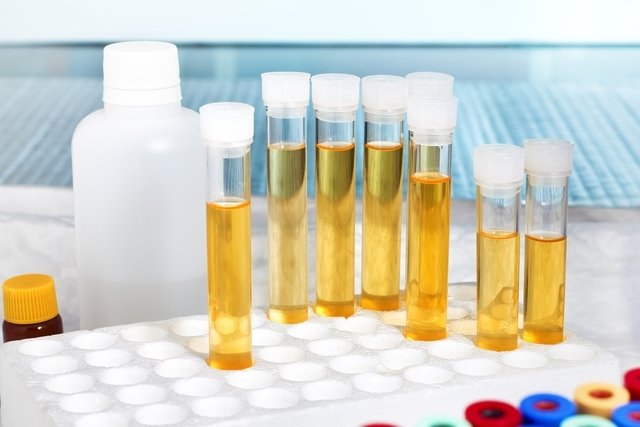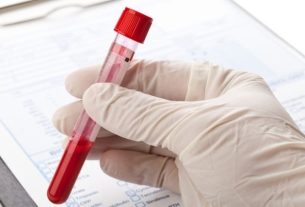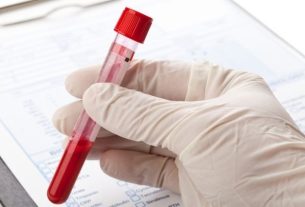The PCA 3 test is a prostate cancer-specific mRNA biomarker performed with a urine sample to identify prostate cancer gene 3 and diagnose this type of cancer effectively.
This test is considered more effective than PSA to identify prostate cancer, as it is performed using the reverse transcription polymerase chain reaction (RT-PCR) method to measure the levels of the PCA 3 gene, which has its expression increased. in the presence of a prostate tumor.
Read too: PCR test: what it is, what it is for and results
tuasaude.com/exame-pcr
In addition to allowing the diagnosis of prostate cancer, the PCA 3 exam is capable of providing information about the severity of this type of cancer, being useful for the urologist to indicate the best form of treatment.

What is it for
The PCA 3 exam is used to:
- Assist in the diagnosis of prostate cancer, providing a more accurate result;
- Provide information about the severity of the cancer;
- Monitor the person’s response to prostate cancer treatment.
This test is more specific for prostate cancer than PSA, for example, as it is not influenced by other non-cancerous diseases or prostate enlargement. See how to understand the PSA result.
Normally, when PCA 3 levels continue to be increased even after starting treatment, it means that the treatment is not being effective, and other types of treatment such as surgery or chemotherapy, for example, are generally recommended.
Do you have questions about your exam results?
The PCA 3 exam is mainly indicated for men over 50 years of age with high PSA and/or who have had one or more prostate biopsies with negative results.
This test can also be requested by the urologist for men who have had a positive prostate biopsy for cancer, and is indicated in these cases to check the severity of prostate cancer, indicating the best form of treatment.
How to prepare for the exam
To prepare for the PCA 3 exam, no special precautions are necessary, it is only recommended to drink at least 500 mL of water before the exam.
How is done
The PCA 3 exam is carried out by collecting 5 mL of urine after the rectal examination, as prostate massage is necessary for this gene to be released in the urine. Understand how the rectal examination is performed.
After the rectal examination, the urine is collected in a specific container and sent to the laboratory for analysis, where molecular tests are carried out to identify the presence and concentration of this gene in the urine, indicating not only prostate cancer, but also the severity, which may suggest the best form of treatment.
How to understand the result of PCA 3
The PCA 3 result must be interpreted by the urologist or oncologist, along with other requested tests.
Generally, the result is provided in the form of a score as:
The higher the PCA 3 result, the greater the likelihood of having prostate cancer, and so the doctor may request a prostate biopsy to confirm the diagnosis. Find out how a prostate biopsy is performed.
When it is not indicated
The PCA 3 test is normally not requested for men who are taking medications that interfere with the PSA concentration in the blood, such as finasteride, for example.
Bibliography
- YAZDANI, M.; et al. Diagnostic value of total serum/free prostate specific antigen and prostate cancer antigen-3 levels in prostate cancer. Am J Clin Exp Urol. 11. 5; 414-419, 2023
- ABDULLA, A.; LESLIE, S. W. IN: STATPEARLS (INTERNET). TREASURE ISLAND (FL): STATPEARLS PUBLISHING. Biomarker Assays for Elevated PSA Risk Analysis. 2023. Available at: <https://www.ncbi.nlm.nih.gov/books/NBK592381/>. Accessed on February 14, 2024
- BORBIEV, T.; et al. Clinical Biofluid Assays for Prostate Cancer. Cancers (Basel). 16. 1; 165, 2023
- CHEN; JY; et al. Biomarkers for Prostate Cancer: From Diagnosis to Treatment. Diagnostics (Basel). 13. 21; 3350, 2023

Sign up for our newsletter and stay up to date with exclusive news
that can transform your routine!
Warning: Undefined array key "title" in /home/storelat/public_html/wp-content/plugins/link-whisper-premium/templates/frontend/related-posts.php on line 12
Warning: Undefined array key "title_tag" in /home/storelat/public_html/wp-content/plugins/link-whisper-premium/templates/frontend/related-posts.php on line 13



